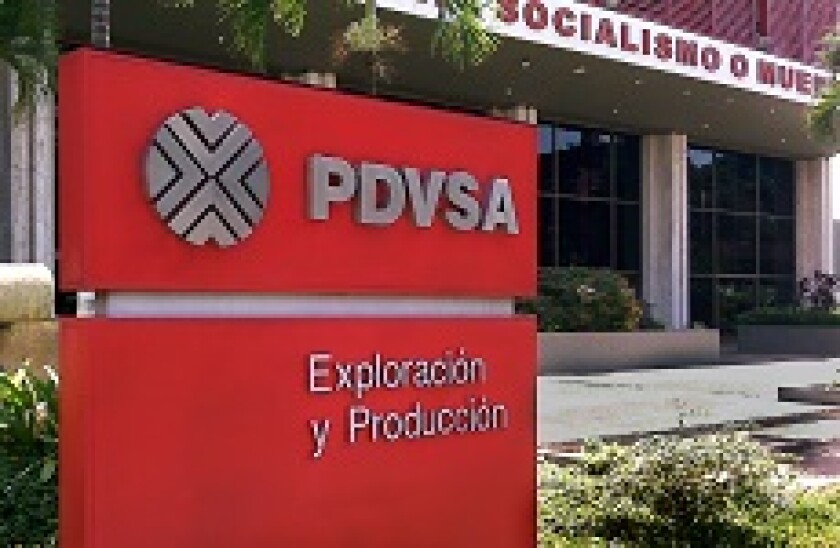If it seems remarkable that the fifth largest oil company in the world is scrambling around to pay its bills, that’s because it is.
That PDVSA, with estimated reserves of $200bn, is having to resort to staggering coupon payments beyond their due date — acting as though the 30 day period is an option you can frivolously take advantage of — is testament to how badly the company, and Venezuela, has been financially managed over the last decade.
But more remarkable was the government’s reaction to PDVSA's approach.
When JP Morgan dared to report on the missing coupon payments, president Maduro slated the bank as an “enemy of the state”. PDVSA president, and oil minister, Eulogio del Pino, went on a left wing TV show saying that Citi had delayed the payments and railing against the same supposed media war that had derailed October’s bond (rather than the fact that PDVSA initially offered zero incentive to offer creditors to extend maturies).
This is all very well for the government’s attempts to persuade the population that Venezuela’s problems are all the result of a “financial terror campaign” and the “imperialist economic war”. But Maduro and Del Pino should realise that they have other people to please: their bondholders.
Rightly or wrongly (it’s a long debate), Maduro has decided to make not defaulting a badge of pride. With the debt maturities facing the country, this will require getting along with bondholders, persuading them to push out maturities again and again.
So cut the crap. Next time you’re late on a bond payment, don’t pretend everything is fine, don’t blame the US president (though a Twitter war between Trump and Maduro might be entertaining), and don’t lie through your two front teeth.
Citi, DTCC and Clearstream all corroborated JP Morgan’s version of the facts. And having come out all guns blazing, PDVSA later admitted in the small print of a press release that in fact it hadn’t been all a conspiracy: the payments on the 2035s were “in process”.
And if you want to explain your situation, don’t do it over salsa music during a national radio broadcast, as Maduro did. Don’t go on a juvenile TV show where the host’s preparation appears to have been smoking a few joints, when he should have been doing a bond tutorial on Investopedia.
Meet investors, tell them what the situation is. Here’s a novel idea: provide them with some economic data for a change.
Because let’s be honest, no one believes that the bond payments “ratify the financial solidity of Venezuela’s main industry”, as the PDVSA press release says. Nor are bondholders there out of an altruistic desire to “invest in the world’s largest crude reserves”, as Del Pino claimed in the same press release; they are there for the 40% returns that Venezuelan debt, with its double digit coupons and sub-50 dollar prices, offered this year.
If Venezuela wants these investors to stick around, it would do well to stop pretending everything is fine and start helping them understand what’s going on.

